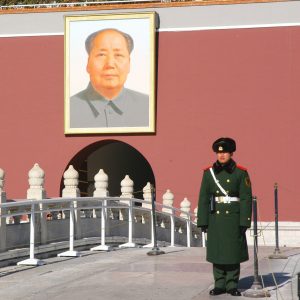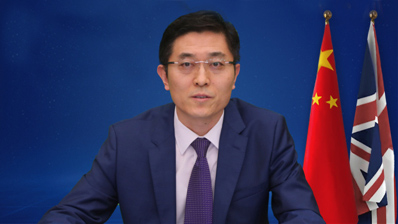1 Apr 2021 | China, Hong Kong, Media Freedom, Opinion, Ruth's blog, Taiwan
[vc_row][vc_column][vc_column_text]

Photo: PublicDomainPictures
The awful actions of the Chinese government over the last month have dominated our news agenda. The collective actions of the government and their outliers have been designed to silence dissent, to intimidate and to bully.
They have repeatedly attacked core democratic principles both at home and abroad, undermining fair political participation. They’ve arrested democracy activists, changed the law to restrict electoral access to the Hong Kong Legislative Council to sanctioned ‘patriots’ otherwise known as the allies and friends of the Government of China.
The ruling Chinese Communist Party (CCP) has also sanctioned British parliamentarians and activists for daring to speak out about the acts of genocide, happening as I type, in Xinjiang province against the Uighur community. The CCP chose not to target members of the British Government nor key businesses with sanctions.
Instead, it sent a political message and targeted backbench Conservative MPs, two think-tanks and an academic, those who had been most vocal in exposing the actions of the CCP in both Xinjiang and Inner Mongolia. This was a move intended to silence criticism not impose economic sanction, a clumsy and ineffectual effort to restrict free speech outside China’s borders.
This week, these aggressive actions by the CCP culminated with yet another attack on media freedom when the BBC’s lead China correspondent, John Sudworth, was forced to relocate with his family from Beijing to Taiwan after a campaign of state-sanctioned threats and intimidation. Sudworth and his wife, a fellow journalist for the Irish RTE, Yvonne Murray, were faced with no other option than to leave after months of personal attacks in Chinese state media and by Chinese government officials. They will both continue to report on events in China from Taiwan.
The harassment of international journalists in China (and now in Hong Kong) is becoming normalised, with dozens of journalists having to leave in recent months; threats of visas being withheld are now commonplace. This is simply unacceptable.
China seeks to be a loud voice on the global stage – they need to live up to their commitments under the Universal Declaration of Human Rights. They need to remember they are signatories to Article 19 and that media freedom and free expression are protected rights.
Index stands in solidarity with John and Yvonne.[/vc_column_text][/vc_column][/vc_row][vc_row][vc_column][three_column_post title=”You may also want to read” category_id=”41669″][/vc_column][/vc_row]
12 Mar 2021 | China, Hong Kong, Opinion, Ruth's blog
[vc_row][vc_column][vc_column_text]

Yang Xiaoguang
It will not surprise you to know that I think words are important. Both in terms of what they tell you and what they don’t. When words come from a diplomat, a person who is trained to be civil and to not give too much away, from someone who is literally paid to give the official line, then their words can be even more insightful.
Which is why I think it is important to read the words of Yang Xiaoguang, chargé d’affaires of the Chinese embassy in the UK (right), from an interview he did yesterday morning on the BBC’s Today programme.
When questioned about the National Security Law in Hong Kong and the ‘patriots governing Hong Kong’ resolution, which was passed unanimously by the National People’s Congress on Thursday, he said:
Different definition about democracy.
In Hong Kong, we have seen too many political frictions.
The aim is to ensure that patriots have the industry power of Hong Kong so that it will be good for the long run of governance. For the benefit of the whole of the Chinese people.
This is an internal affair.
And when challenged on the treatment of the Uighurs in Xinjiang he said:
British Bias Corporation.
Too much fake news.
Genocide doesn’t exist in Xinjiang.
We are bringing economic development and stability in Xinjiang.
Taken at face value this completely counterfactual narrative could be plausible. Until facts get in the way.
You cannot dismiss images of Uighur men in lines at a train station, waiting to go to the ‘re-education’ camps as fake news. You cannot claim that China has a different definition of democracy when they signed up to the original plans for one country, two systems. And you cannot claim that you are acting for the benefit of the people of Hong Kong and China when you implement a new National Security Law and arrest over 100 leading democracy campaigners, including 47 charged with subversion last week for daring to hold election primaries in Hong Kong.
There is a genocide happening today in Xinjiang province as I type. The few witnesses who have managed to escape have told consistent stories. The images of the queues and of the camps have been verified. The US and Canada recognise these actions as acts of genocide.
In Hong Kong, we’ve looked on in horror as the CCP have moved in, asserting their authority with the National Security Law. We’ve watched as social media accounts have disappeared, as activists have been arrested, as journalists have been silenced and as the BBC World Service was banned.
The CCP seemingly no longer cares what the world thinks. It is has made a strategic calculation that it’s economic might protects it from global condemnation. That a propaganda campaign against public broadcasters like the BBC will be successful. That no one is brave enough to challenge them.
But brave the world must be. People are dying. People are being arrested. People are disappearing. On our watch.[/vc_column_text][/vc_column][/vc_row][vc_row][vc_column][three_column_post title=”You may also want to read” category_id=”41669″][/vc_column][/vc_row]
26 Feb 2021 | Events
[vc_row][vc_column][vc_single_image image=”116310″ img_size=”large”][vc_column_text]Over the past two years, there have been massive citizen-led protests in Hong Kong, Thailand, Russia, and Belarus — as well as major acts of repression by their governments. Join us for a roundtable discussion that will zoom into these four countries, focusing on the similarities and differences between the two pairs of locales: Hong Kong and Thailand, and Russia and Belarus.
Our panel of experts include Natalya Chernyshova, Senior Lecturer in Modern History at the University of Winchester who will discuss Belarus; Nina Khrushcheva, Professor in the Julien J. Studley Graduate Programs of International Affairs at The New School who will discuss Russia; Claudio Sopranzetti, Assistant Professor in Anthropology at Central European University who will discuss Thailand; and Jeffrey Wasserstrom, Chancellor’s Professor of History, UC Irvine, who will discuss Hong Kong. The conversation will be led by Maria Repnikova, Assistant Professor in Global Communication at Georgia State University, and will explore the possibilities of these citizen-led protests, and whether there have been — or will be — any major changes in government leadership, culture, or international relations within the four locations.
This event is programmed in partnership with the UCI Forum for the Academy and the Public, Wende Museum, Central European University Democracy Institute and the Orange County World Affairs Council.
Register for tickets here.[/vc_column_text][/vc_column][/vc_row][vc_row][vc_column][/vc_column][/vc_row][vc_row][vc_column][vc_column_text][/vc_column_text][/vc_column][/vc_row]
19 Feb 2021 | China, Hong Kong, Media Freedom, News and features
[vc_row][vc_column][vc_single_image image=”116283″ img_size=”full” add_caption=”yes”][vc_column_text]Index on Censorship has condemned the removal today of the director of broadcasting of Radio Television Hong Kong from his post and his replacement with a civil servant approved by the Hong Kong Government.
Veteran journalist Leung Ka-wing has been in the post since 2015 and his contract was due to come to an end in August this year, although his tenure had already been extended by three years in 2018.
The Hong Kong government announced today that he would leave his post immediately, with civil servant Patrick Li Pak-chuen taking over on 1 March. Li has served as deputy secretary for home affairs since 2017 and has previously worked in the Security Bureau.
Commenting on the appointment, the Secretary for the Civil Service, Patrick Nip, said, “Li is a seasoned administrative officer with proven leadership and management skills. I believe that he will continue to serve the community with professionalism and dedication in his new capacity, and ably lead the Radio Television Hong Kong (RTHK) to meet the challenges ahead.”
In its statement, the Government made a clear point of Li’s role at the broadcaster. “As Director of Broadcasting, Li will ensure that RTHK fully abides by the charter of RTHK,” it said.
Index’ s CEO Ruth Smeeth said, “Hong Kong has been a bastion of media freedom for decades. This chilling statement from the Chinese Government removing the Director of HKTV is another step towards a truly authoritarian regime in Hong Kong. We stand in solidarity with the people of Hong Kong and those journalists are trying to cling on to their media freedom which is so precious.”
The news comes in the wake of a tit-for-tat battle been China and the UK over broadcast rights.
On 4 February, the UK’s broadcasting regulator Ofcom rescinded the licence of China Global Television Network (CGTN), an international English-language satellite news channel, following an investigation into who held editorial control for CGTN’s output.
A spokesperson said, “Our investigation showed that the licence for CGTN is held by an entity which has no editorial control over its programmes. We are unable to approve the application to transfer the licence to China Global Television Network Corporation because it is ultimately controlled by the Chinese Communist Party, which is not permitted under UK broadcasting law.”
A week later, the Chinese government banned the broadcasting of BBC World News in the country. China’s National Radio and Television Administration said the BBC’s broadcasts were not “truthful and fair” and it caused harm to China’s national interests.
RTHK also announced it would stop relaying the BBC’s World Service radio.[/vc_column_text][/vc_column][/vc_row][vc_row][vc_column][three_column_post title=”You may also want to read” category_id=”40980″][/vc_column][/vc_row]


